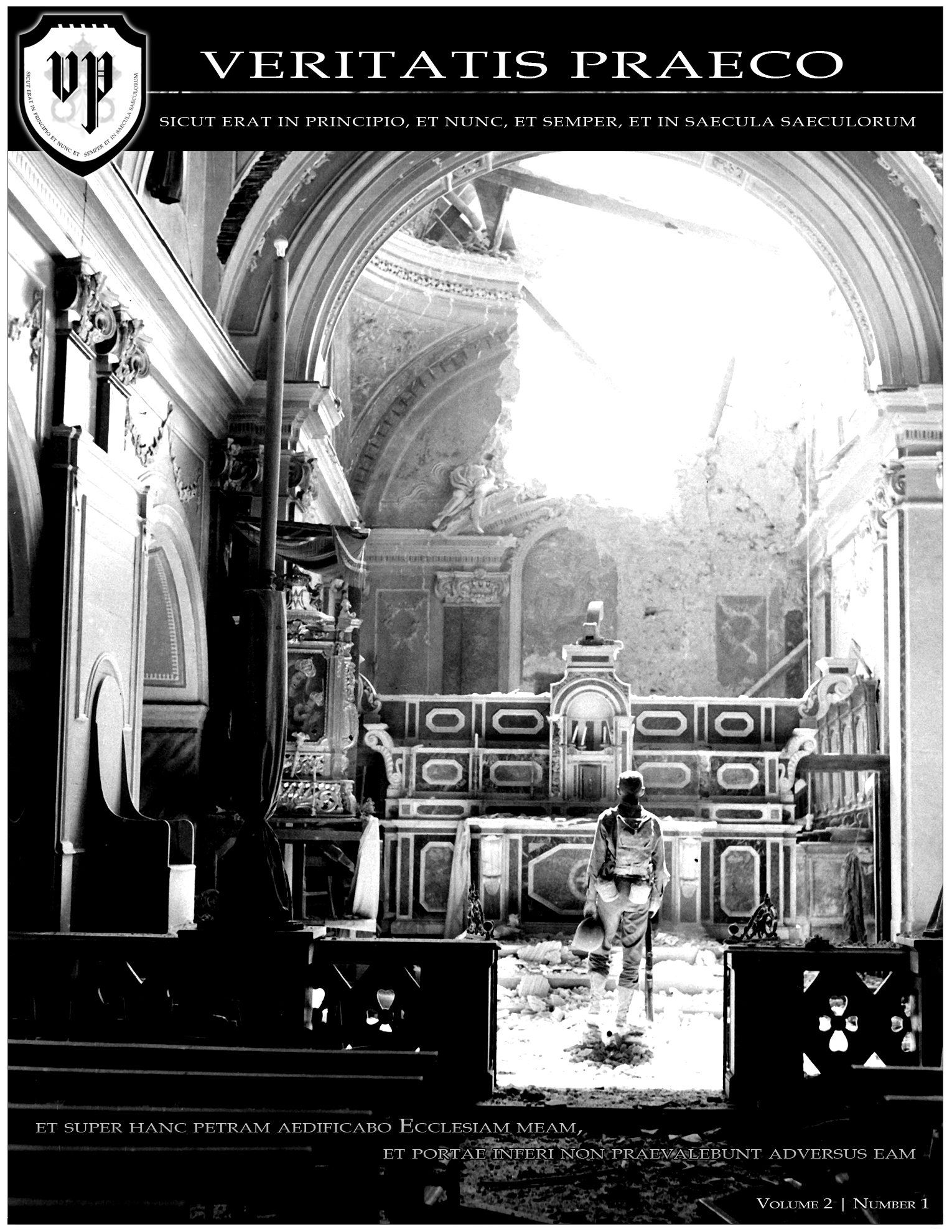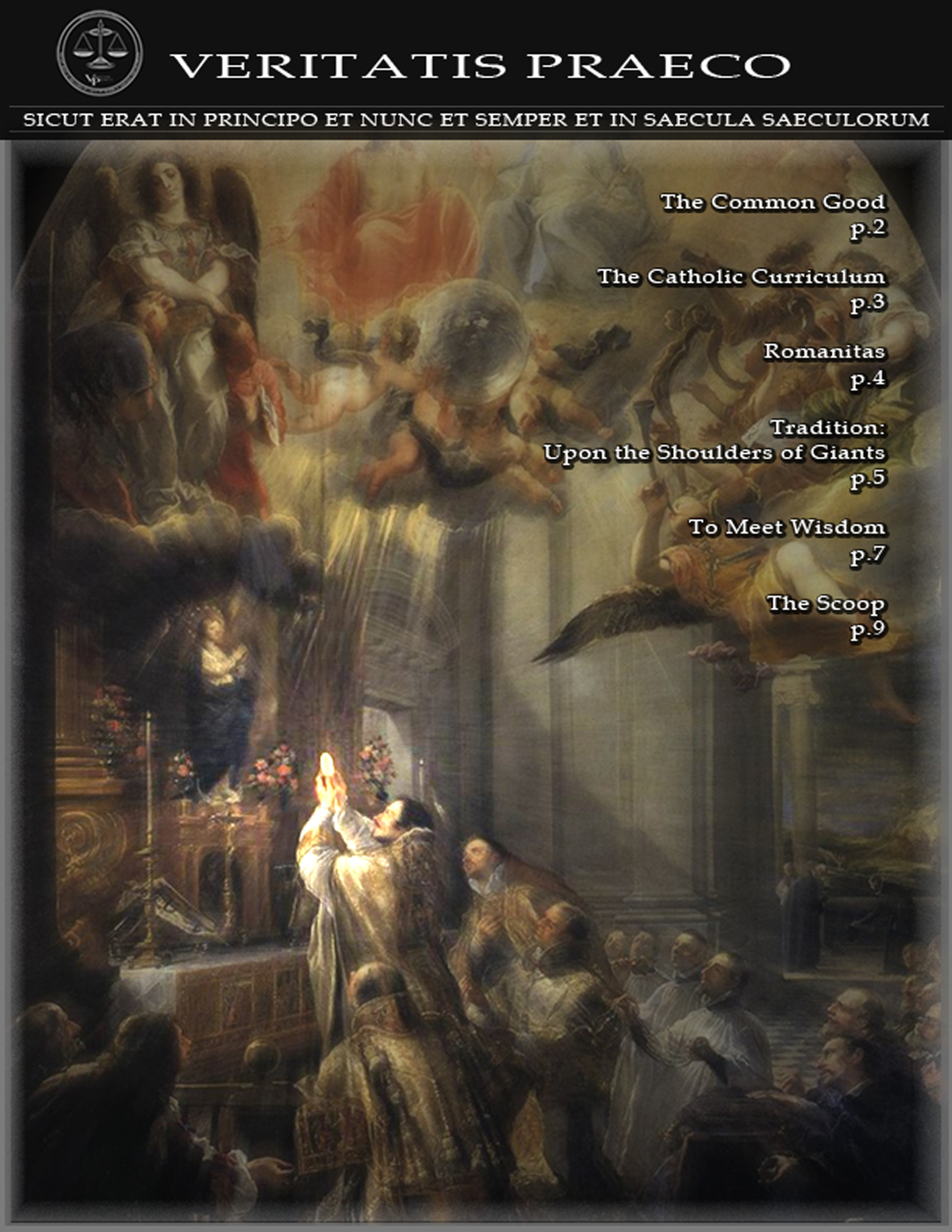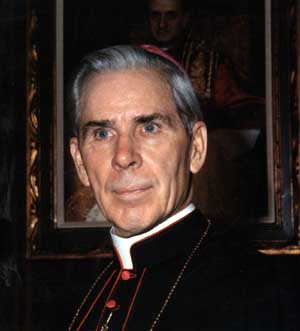Archive
Verbum Mentis Analogicum
Matter, understood in the Aristotelian-Thomistic framework of natural philosophy, corrupts; that is, matter, which exists only by virtue of a form, is always disposed to receive some other form. In terms of substances, this receptivity entails destruction. Corruption in this sense does not mean gradual decay, but the immediate separation of form. To receive a new form, matter must be, however, properly disposed; that is, the antecedent form must be such that it does not refute the consequent.
In other words, the material universe allows for things to always get better, but also always to get worse… and the worse it gets, the more work it takes to make it better. Though informed by a spiritual soul, nevertheless human beings, whose spiritual faculties depend extrinsically on the functioning of the body, admit such variegation.
I am often accused of being a pessimist, though I maintain that this is really a case of persistently disappointed optimism. Man can overcome the weakness concomitant to his inescapable materiality by human virtue–the perfection of his natural faculties–and the defect of his nature may be overcome by the sacramental grace of God–an elevation beyond what he can rightly attain of his own accord. At times, pursuit of either good one can result in neglect of the other. Though it is always preferable to receive God’s life-giving sanctity, and though His grace may overcome any defect within nature, it is nevertheless a mistake to ignore natural virtue and pursue only the spiritual. Men are not angels, and, being material, need to be rightly disposed for the reception of good forms. No disposition ever merits reception of God’s grace; but inclination to sin is likewise an inclination to the rejection of God. All too often, men are not only inappropriately disposed for the reception of God’s grace–that is, in a state of sin–but also for the development of natural virtue.
In other words, men are not only ignorant, which is a mere absence of knowledge; they are both morally and intellectually stupid. They have developed an immunity to reason and virtue. It is undeniable that human beings have spent much of their history, as a whole, more ignorant than the mass of men making up the world today. Yet if we take stupidity (stultitia in Latin, often translated “folly”) to be the vice opposed to wisdom, the virtue which consists in knowledge of the highest principles, it should be evident that the present population of the word is suffering from a pandemic of stupidity; for, despite a decrease in ignorance of facts, there is a pervasive abdication from principle.
While it is possible to neglect the spiritual for the material, or vice versa, one can never separate the two; likewise with speculative or theoretical and practical reasoning. To neglect one half of either pair, however, leads to atrophy and rot, and rather than a functional limb, one is left with a useless husk which only impedes the good of the other. The human body exists for the sake of the human soul; and the speculative is turned into the practical by extension–that is, by applying the universal truths discovered by intellectual operations to actions, to act in accord with right reason. This inseparability of the immaterial and material extends to all aspects of human life: religion and politics, faith and reason, science and philosophy; the good of each depends upon the good of the other, just as the good of any body depends upon each of its parts, and the good of each part depends upon the good of the whole. Though not every human individual will engage with each of these pursuits, they nevertheless go towards making up the whole human experience. Without principles uniting these many elements, disorder invariably ensues.
The fallout of decentralized and unprincipled approaches human life into many parts was astutely observed, as were so many other signs of moral decay, by Richard Weaver, in his seminal Ideas Have Consequences. He called it the “centrifugal impulse of our culture” in a marvelous chapter titled “Fragmentation and Obsession”. Those two words have often stuck with me in considering the contemporary ethos; we segregate our personal lives from our professional, our faith from our socializing, our work from our pleasure, and make each out to be an almost singular object of focus. Moreover, we isolate the pursuits of our profession from those of others or from common life; as Weaver warned, this results in the non-consideration of the ethical implications of one’s work. Cancer researchers, often lauded for the nobility of their end, subject children to cruel and unnecessary treatment for the sake of experimentation; accountants find loopholes in the code to exempt big business from billions of dollars in lawfully-owed taxes; politicians compromise or abandon the positions of their platforms to adapt to the “political landscape” so that they avoid appearing unsuccessful; journalists selectively present facts and edit stories to produce a juicier story or advance an ideology; and academics fritter their time away on obscure and irrelevant minutiae of scholarship, becoming so obsessed with the past that they forget any relevance for the present or future. No profession is exempt from fragmentation and obsession. Society not only permits, but encourages segregation–most especially through the relegation of faith and religion to the sphere of opinion. If what ought to be the most important principle in a human life is publicly marginalized, it is no doubt that what it ought to unite will begin to separate.
For all his insight, however, Weaver did not have a viable solution which he could propose, nor even a definite direction towards which he could point except backwards. His philosophical perspective was that of the Platonist, who views the material world as merely an imitation of the pure Forms. The honest Platonist recognizes the necessity of natural virtue, to be sure; but the practical good can for him never be more than a necessary evil to be overcome en route to pure speculative bliss.
Others have looked to the philosophy of St. Thomas Aquinas for an answer. Much has been achieved by the revival of Thomism; it has and ought to occupy a prominent place in the pursuit of a well-ordered genuinely human civilization. His teaching, it has been said, is the teaching of the Catholic Church. The range and perspicacity of his thought is marred only by the inability of us lesser men to grasp fully the meaning and consequence of his often all-too-briefly stated wisdom. Pride of place ought to be given to Thomistic philosophy in discerning the eternal speculative truths which permeate the natural world and enable us to elevate our minds beyond this sublunary reality.
Yet Thomism, like nearly all “-isms,” has inescapable limitations in affecting the good of all the world. While all men ought to live in pursuit of wisdom, to love the truth, and to reflect thoughtfully on all that they do, the philosophical life is not identical with philosophy as such, nor is it right to demand that all thought cohere with the verbo ipsissimo of Thomas himself. Moreover, while the speculative is necessary for the right-ordering of the practical; but the man who dedicates himself to the speculative can only do so much in the practical, and vice versa. Thomism is a vital part, but nonetheless not the whole; rather than make it a mold into which we force the world, we should see it rather as a principle of ordering the academic life, of the scholarly pursuit of truth.
There is, however, one “-ism” which can claim to be the principle of the whole in the world: namely, Catholicism. The very name means “universal”–it is that which extends to all, embraces all, and as I once wrote over five years ago, lays claim to every truth and every goodness. Catholicism is, by definition, non-sectarian and non-exclusionary. It is not a human institution, but an institution by God for humans; the most perfect extension of speculative to practical. And yet, just as the soul requires the body, and the right disposition of the body, so too Catholicism needs for its members to rightly disposed to live rightly and receive the grace of God. The influence of Catholicism on our lives cannot be merely spiritual; it cannot be relegated to within the walls of a church, to an hour on Sunday or even an hour every day of the week. It should be for us not only a source of faith, but a source of culture.
Hence the title of this post. The verbum mentis is the mental word; it is a conclusion to a process of reasoning, bringing it to a conclusion; the expression of what something is. Something analogical is said in many ways, and thus of many things. Many of my conversations of late have been concerned with the state of the world–not in a merely political sense or with regard to some abstract Geistesgeschichte, but the concrete realities of lived experience–and asking myself the question, “What can be done? How can things be set on the right path, when the problems are so widespread? What can establish order?”
The answer is, in a way, very obvious.








